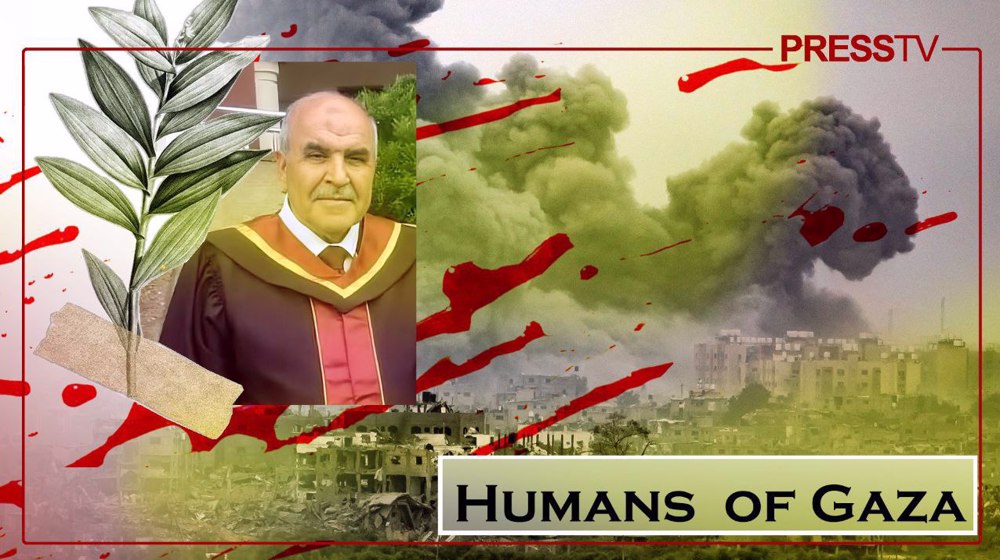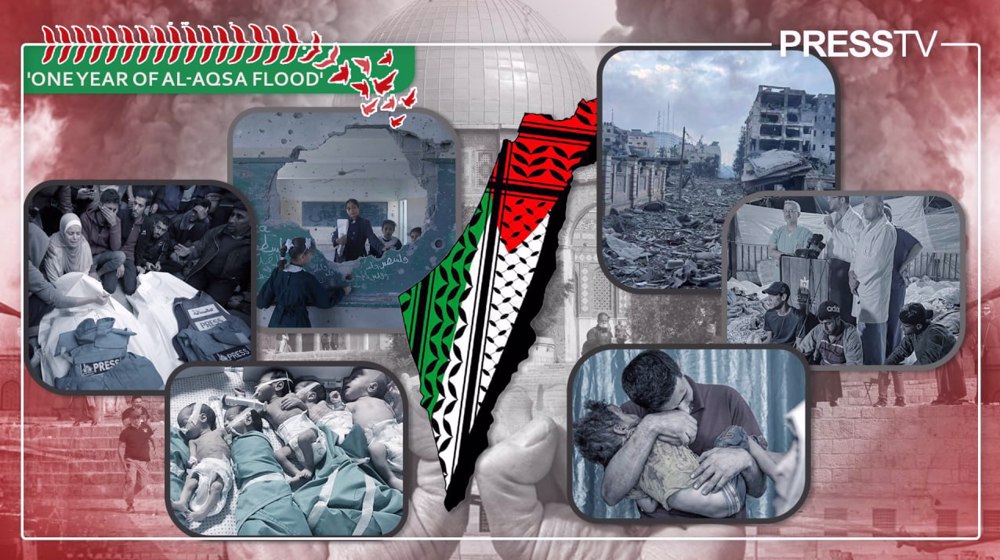Humans of Gaza: One year since Gaza’s beloved professor was murdered by Israel
By Humaira Ahad
In the bustling corridors of the Islamic University of Gaza, the name of Professor Ibrahim Hamed Hussein al-Astal was always spoken with reverence and admiration.
Years of educational services put Professor Astal on a high pedestal in academic circles within the coastal strip. University students frequently sought his advice and looked up to him for guidance.
A renowned researcher in the Arab world, Professor Astal served as the Dean of the Faculty of Education at the Islamic University of Gaza. His days were mostly spent teaching or contributing to globally recognized scientific journals.
Like the lives of millions of other Palestinians, Israel’s genocidal war on Gaza that completed one year earlier this month cut short the life of this distinguished Palestinian academic as well.
A day after the genocidal war on Gaza was launched, Professor Astal voiced his fears on social media.
“Oh God, Lord of the worlds, protect us from troubles, and protect Gaza and its people, and be our aid, O God, sustain it with Your help,” he posted on Facebook on October 8, 2023.
Tragically, his worst fears came true on October 23, 2023, when Israeli airstrikes bombarded his home in Gaza City, killing the 62-year-old professor, his wife Nadia Yassin Hussein al-Astal, and their two daughters, Dr. Ibtihal al-Astal and Dr. Afnan al-Astal.
A total of 87 members of Professor Astal’s extended family were killed in these strikes.
Humans of Gaza: Not merely numbers!
— Press TV 🔻 (@PressTV) October 11, 2024
They’re people Israel has massacred in Gaza!#HumansOfGaza pic.twitter.com/1SblxnnQuK
His death sent shockwaves through Gaza’s intellectual community. Palestinians had not expected that hundreds of academics would fall victim to the occupying regime’s brutal war on the territory that has now claimed nearly 43,000 lives, most of them children and women.
As an eminent Palestinian intellectual, Professor Astal's life was dedicated to teaching. He was committed to shaping Gaza’s future, and his students fondly remember him as a devoted mentor who went above and beyond to support them.
Professor Astal’s academic journey took him to various countries. In 1996, he earned a PhD in “Curriculum and Mathematics Teaching Methods.” After completing his doctorate, he began teaching at Al Ain University and Ajman University in the United Arab Emirates (UAE).
Following his time in the UAE, Professor Astal returned to Gaza and joined the Islamic University, where he held several key positions in the Faculty of Education. He served as the Head of Curriculum and Teaching Methods before rising to the position of Dean in 2019.
A prolific educational theorist and researcher, he spent years writing and editing papers on educational and psychological studies. In 2005, he co-authored the book “The Teaching Profession and the Roles of Teachers in the School of the Future.”
He was also the editor-in-chief of the Islamic University’s Research Journal of Educational and Psychological Studies.
As a committed advocate for education, al-Astal coordinated numerous programs and projects across Gaza, all aimed at improving the quality of education in the besieged territory.
His efforts focused on advancing technological education in universities and colleges, and he spearheaded initiatives such as "Improving the Quality of Technology Education Teacher Preparation Programs in the Universities and Colleges in Gaza Strip" and the "Teacher Education Improvement Program (TEIP)."
The genocidal war that claimed Professor Astal's life has also devastated Gaza’s education system. Academic experts say the Israeli regime is engaging in what they call "scholasticide."
“Scholasticide refers to the systemic obliteration of education through the arrest, detention, or killing of teachers, students, and staff, as well as the destruction of educational infrastructure,” reads a United Nations report.
“With more than 80% of schools in Gaza damaged or destroyed, it is reasonable to ask whether there is an intentional effort to annihilate the Palestinian education system—an act known as ‘scholasticide’.”
According to figures provided by the Palestinian health ministry, 120 academics have been killed since October 7, 2023. Every university in Gaza has been destroyed, and at least 11,500 Palestinian students have lost their lives in the ongoing conflict.
The Council for At-Risk Academics (Cara), a charity that assists scholars threatened by persecution, violence, and conflict, says Palestinians represent the “highest number of academics in need of urgent assistance.”
But, for Professor Astal and many others, it’s already too late.
Press TV’s website can also be accessed at the following alternate addresses:








 This makes it easy to access the Press TV website
This makes it easy to access the Press TV website